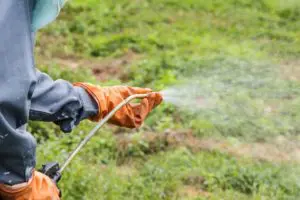What is a Claim?
A claim is a legal action concerning physical or mental harm suffered by the plaintiff due to the defendant’s negligence. In the case of insurance claims, it is a request made by the insured to the insurance company for coverage and compensation for damage or injury. A claim is sometimes also referred to as a Cause of Action.

What is a Claim?
Cornell Law School’s Legal Information Institute defines a claim as, “a set of operative facts creating a right enforceable in court.” Making a claim is how the process of a plaintiff filing a lawsuit and eventually receiving damages from a defendant begins. A claim must be present in order for a lawsuit to go forward. If one is not present in a specific instance, then that lawsuit will be dismissed. Examples of types of claims include claims to insurance companies, personal injury claims in cases of negligence, claims on breaches of contract, property claims, and employment claims such as unpaid wages, wrongful termination, or discrimination. A defendant may make a counterclaim against the claim of a plaintiff.
Claims can sometimes be dismissed even if there is an intent to file a lawsuit. Rulings in cases such as Ashcroft v. IQBAL and Bell Atlantic v. Twombly have determined that claims need to contain important information. They must be plausible on their own and establish a likelihood of liability. This is how claims can lead to fair compensation, resolution of disputes, and protection of rights.
More information about Claim
Hazleton Catastrophic Injury Lawyer
If you or a loved one experienced a catastrophic injury as the result of a traumatic accident, it is critical that you get the right legal representation. Our attorneys have decades of experience representing accident victims in Hazleton and throughout Pennsylvania.
A catastrophic injury can impact your life in more ways than most people can comprehend. From chronic pain and limited mobility to physical disabilities and emotional trauma that interfere with your ability to work and enjoy life, suffering a catastrophic injury can truly mean that life will never be the same.
If you or a close family member has been diagnosed with a catastrophic injury as a result of an accident in which another person or company was to blame, you deserve compensation for your injury-related losses. While no amount of money can truly restore what you have lost, asserting your legal rights can be critical to your recovery and your family’s long-term financial stability. […]
Read MoreMore information about Claim
Pottsville Medical Malpractice Lawyer
If you or someone you love suffered due to medical negligence in the Pottsville area, contact a Pottsville medical malpractice lawyer at Munley Law Personal Injury Attorneys for a free consultation
 When someone suffers harm because of medical mistakes or failure to follow a standard of care, the negligent caregiver should be held responsible. As the patient or patient’s family member, you may be eligible for financial compensation for your suffering. The medical malpractice lawyers at Munley Law Personal Injury Attorneys can help. For nearly 60 years, our personal injury lawyers have helped people like you who have been harmed by medical errors or negligence.
When someone suffers harm because of medical mistakes or failure to follow a standard of care, the negligent caregiver should be held responsible. As the patient or patient’s family member, you may be eligible for financial compensation for your suffering. The medical malpractice lawyers at Munley Law Personal Injury Attorneys can help. For nearly 60 years, our personal injury lawyers have helped people like you who have been harmed by medical errors or negligence.
Medical malpractice cases are often very complex. It is vital that you consult with an experienced medical malpractice attorney in Pottsville to ensure your have the best chance of recovering full and fair compensation for your losses. […]
Read MoreMore information about Claim
Pottsville Product Liability Lawyer
Hurt by a dangerous or defective product in Schuylkill County? Get a free consultation with a Pottsville product liability lawyer at Munley Law Personal Injury Attorneys.
As a consumer, you expect that the products you use each day have been properly designed and tested for safety. It is the responsibility of product designers and manufacturers to ensure that their products are not dangerous, defective, or harmful in any way to the consumer. If someone gets hurt because of a defective or unsafe product, the brand or manufacturer of that product may be liable.
At Munley Law Personal Injury Attorneys, we hold the makers of dangerous products accountable for the harm they cause. Product liability cases are difficult, so it’s imperative that you find an attorney with experience handling these cases. Our product liability lawyers have decades of experience handling a wide range of products cases including everything from automotive recalls to unsafe medical devices. […]
Read MoreMore information about Claim
Lawsuits claim Roundup weed killer causes cancer
Lawsuits Allege: Roundup Weed Killer Linked to Cancer
 Hundreds of lawsuits allege that Roundup, a popular weed killer used on everything from crops to home gardens, has caused cancer in those exposed to it. They also claim that the makers of Roundup knew about the cancer risk, and failed to warn consumers.
Hundreds of lawsuits allege that Roundup, a popular weed killer used on everything from crops to home gardens, has caused cancer in those exposed to it. They also claim that the makers of Roundup knew about the cancer risk, and failed to warn consumers.
Specifically, plaintiffs claim that exposure to Roundup increases the risk of:
- Non-Hodgkin’s lymphoma (NHL) including B-cell and T-cell lymphoma
- Leukemia
The main ingredient in Roundup, glyphosate, is the most widely used herbicide in the world.
Monsanto Misstates Research Findings
The lawsuits also allege that chemical giant Monsanto deceived consumers about the safety of their product. Though it is marketed as safe enough to use around pets and humans, studies have found that Roundup potentially very harmful to humans. […]
Read MoreMore information about Claim
How to Choose the Right Personal Injury Lawyer for You
Choosing the right personal injury lawyer
 When you find yourself in need of legal advice or representation, it can be hard to know where to begin. You may never have had to seek a lawyer before. You may be unfamiliar with how the legal system works, or whether you even have a case. With so many lawyers to choose from, how do you know who you can trust? How do you know who will get the best results? We have some advice on how to choose the right personal injury lawyer for your unique case.
When you find yourself in need of legal advice or representation, it can be hard to know where to begin. You may never have had to seek a lawyer before. You may be unfamiliar with how the legal system works, or whether you even have a case. With so many lawyers to choose from, how do you know who you can trust? How do you know who will get the best results? We have some advice on how to choose the right personal injury lawyer for your unique case.
Not all law firms are created equal. In fact, your choice of personal injury lawyer can make all the difference in the success of your case. When you’ve been injured, or lost a loved one in a tragic accident, you want to know that your case is in the right hands. […]
Read More










